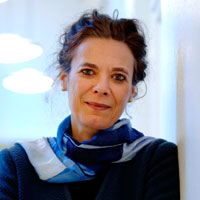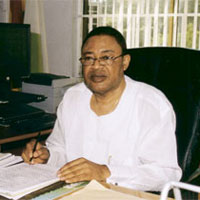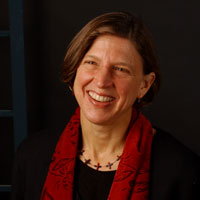Pamela Ronald, Louise Fresco and Monty Jones—influential voices from a wide variety of perspectives—engage in a spirited discussion and debate on issues vital to our future. By 2050, one of every four people on Earth will go hungry unless food production more than doubles. Science-based agriculture has proposed unconventional new tools — earthworms, bacteria, and even genes from sunny daffodils — to meet this towering challenge. But will such innovative ideas be enough? And can we bridge the ideological divide over genetically modified foods that separates scientists and environmentalists? What role does eating and farming locally play in the next green revolution?
This program is part of The Big Ideas Series, made possible with support from the John Templeton Foundation.















